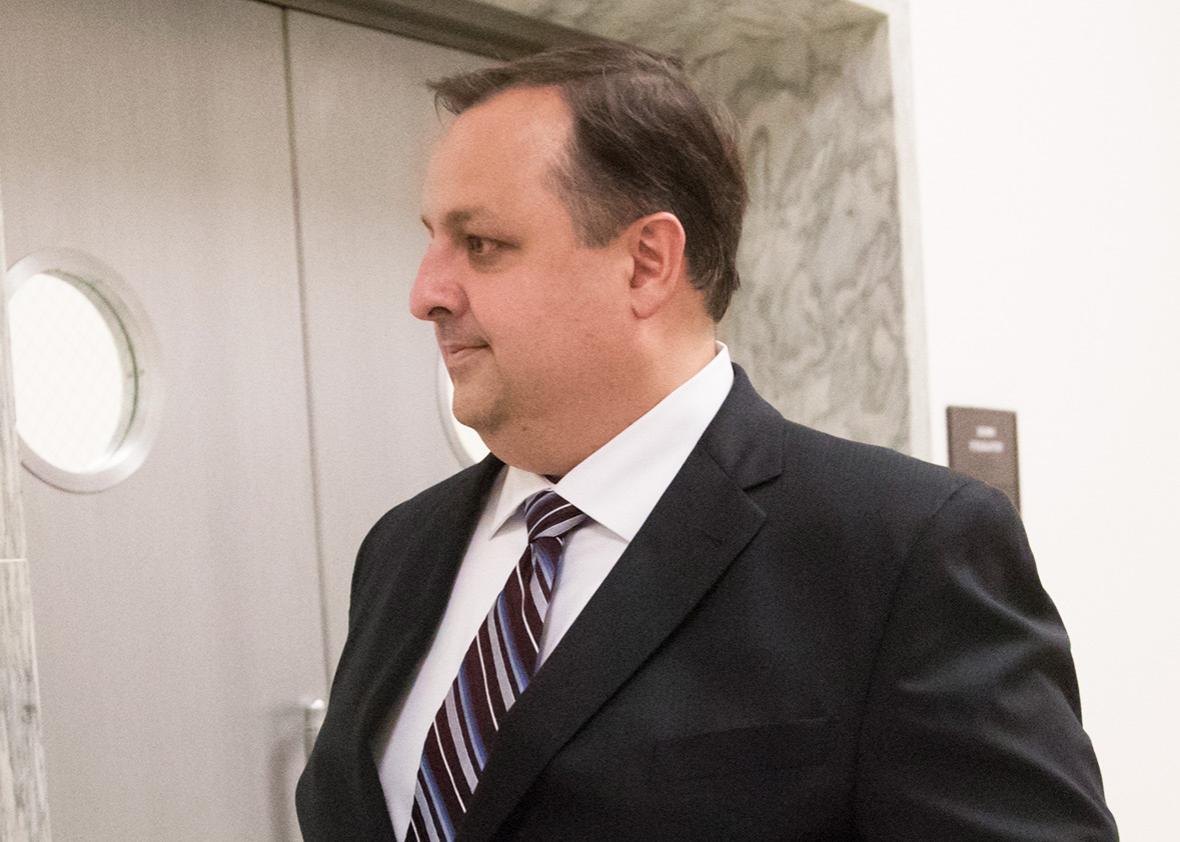The head of the U.S. Office of Government Ethics announced Thursday that he is stepping down. In that position, Walter Shaub challenged Donald Trump over his and his administration’s myriad conflicts of interest. Shaub’s five-year term would have run through January 2018, making his departure a disappointing surprise for those who had watched him use a previously obscure federal post to publicly sound the alarm about Trump’s unethical practices.
Shaub informed the president of his decision via a short letter. While it didn’t give a specific reason for his decision to step down six months early, it’s not difficult to read between the lines given his past tangles with Trump and the president’s Republican defenders in Congress. “The great privilege and honor of my career has been to lead OGE’s staff and the community of ethics officials in the federal executive branch,” Shaub wrote. “They are committed to protecting the principle that public service is a public trust, requiring employees to place loyalty to the Constitution, the laws, and ethical principles above private gain.”
Shaub elaborated on his decision in an interview with the New York Times and the Washington Post, telling the papers that he was not pressured by the president or anyone else in the administration to step down. Instead, Shaub said he simply felt there was no reason to run out the clock given his agency’s lack of enforcement power. “There isn’t much more I could accomplish at the Office of Government Ethics, given the current situation,” he told the Times. “OGE’s recent experiences have made it clear that the ethics program needs to be strengthened.”
The announcement comes less than two weeks after the Justice Department’s compliance attorney, Hui Chen, left her post before her contract was up because she said she had no right to hold private companies to ethics standards that the White House itself was not meeting. Chen was more vocal about her reasons for leaving, but Shaub’s departure is far bigger news given how much he has sparred in public with the administration.
The soon-to-be former OGE chief proved to be a thorn in Trump’s side even before the inauguration. In late November, after Trump made another just-trust-me promise to fully separate himself from his business, Shaub took to his agency’s official Twitter account to underscore the emptiness of that pledge. “Only way to resolve these conflicts of interest is to divest. Good call!” Shaub wrote in faux-encouragement, knowing full well that Trump had no such plans. When Trump finally unveiled the lackluster details of his plan two months later, Shaub replaced sarcasm with sincerity and declared the plan “meaningless.”
In April, Slate named Shaub among the 80 people and institutions that had kept Trump in check during his first 100 days in office—and for good reason. OGE is an advisory agency with little enforcement power, yet Shaub somehow was still able to use his post to force the Trump administration to formally defend actions it would have rather ignored. In the process, he was able to notch small but tangible victories, like when he went toe to toe with the president’s lawyers over the administration’s plan to keep secret the internal ethics waivers it handed out to senior staff. More often, however, Shaub’s hands were more or less tied, given that his office ultimately reports to the president and since congressional Republicans made it clear that they were unhappy with Shaub’s efforts to hold Trump to the same ethics rules and norms past presidents at least pretended to follow.
Shaub’s next job will be at the Campaign Legal Center, a nonprofit legal advocacy group founded by Trevor Potter, who served as a GOP appointee to the Federal Election Commission and who is best known for helping Stephen Colbert set up the Americans for a Better Tomorrow, Tomorrow super PAC. According to the Post, OGE chief of staff Shelley K. Finlayson will most likely take over as acting director once Shaub departs on July 19, though it’s always possible Trump could appoint another senior OGE official to serve as a placeholder until the Senate confirms his chosen permanent replacement. Regardless of who gets the job, though, the most that can be reasonably expected of the new director is that he or she picks up where Shaub left off. And that, sadly, means fighting a battle that is unwinnable unless the OGE is given more power—or until Congress is willing to step up to apply some pressure of its own.
Know anything about a potential conflict of interest in the Trump administration? DM Josh Voorhees on Twitter or email him at josh.voorhees@slate.com.
